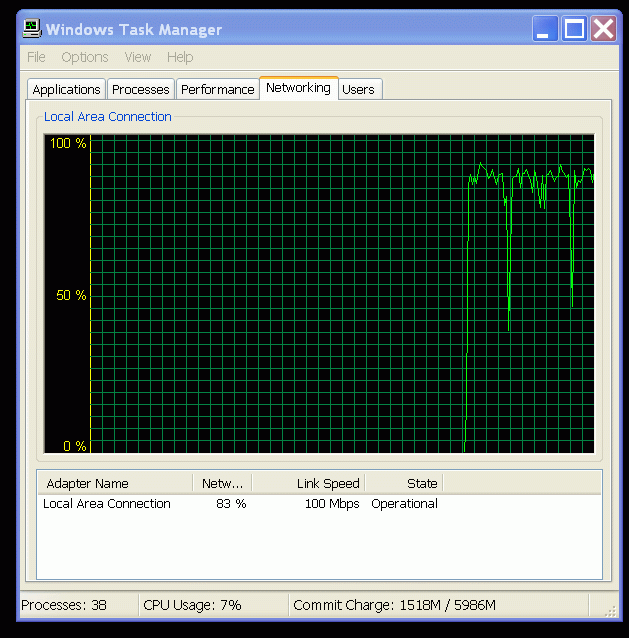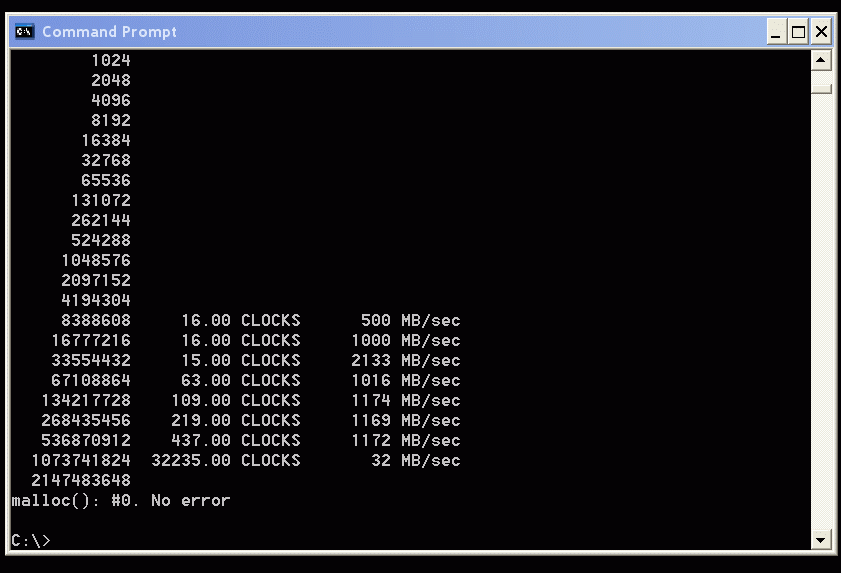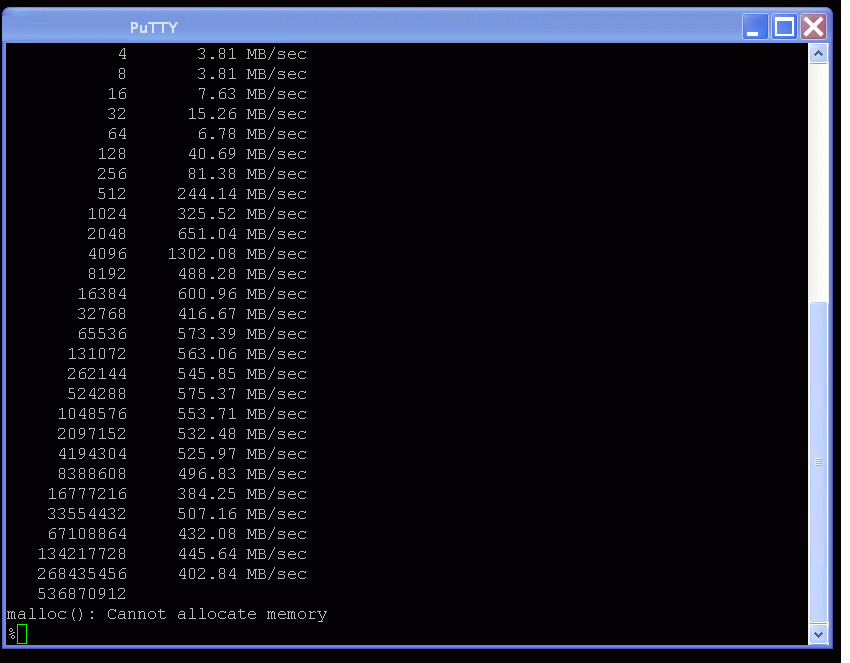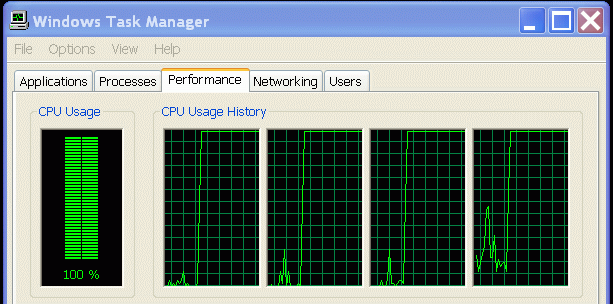Benchmarks
Disk Write Speed Benchmark
diskwrite
| diskwrite.c | source code |
| diskwrite.exe | windows executable |
This will write a large disk file and time it. When it is done, it computes the write speed in Megabytes per second. A megabyte is 1024 * 1024 bytes. A gigabyte is 1024 * 1024 * 1024 bytes.
The file size must be larger than memory size and disk controller and hard drive cache size to be meaningful.
The default file size is 4 gigabytes. This can be overridden by specifying the number of megabytes as the first parameter on the command line. Specifying 100 gives fairly meaningful results in a lot less time.
The windows version will saturate the disk channel or the network channel.
Running this twice to the same hard drive is useful for stressing a flaky hard drive channel.
Running this twice from 2 different computers over the network channel is very useful for stress testing your network. Your network should should not drop any connections even under this load.

Saturated Network
RAM Write Speed Benchmark
ramzero
| ramzero.c | source code |
| ramzero.exe | windows executable |
This program will allocate, zero and then free larger and larger blocks of RAM until it fails.
It calculates the speed at which the ram is zeroed in megabytes per second.
After you run this on a windows box, ALL your working ram will have been swapped out. Switching back to currently running apps (cough Mozilla cough) takes a long time as they are swapped back in.
This program is useful for approximating RAM access speed and for testing flaky RAM / SWAP subsystems.
It should not crash a stable system.

RAM Speed - Windows Version

RAM Speed - Unix Version
Multi-core Processor Benchmark for Unix
unixthread
Defaults to 4 threads
unixthread 8
Runs 8 threads
gcc unixthread.c -o unixthread -lthr
gcc command line with -lthr option to include pthread library.
| unixthread.c | source code |
This benchmark can saturate all the cores on a multi-core processor.
Each thread will run the same amount of operations. Running 4 threads will do 4 times as much work.
In theory, a 2 core machine should run 2 threads as quickly as 1 thread.
In practice, 1 thread took 83 seconds, while 2 threads took 93 seconds.

top with saturated dual core showing greater than 100% cpu usage
Here is the Windows Version.
References
-
IBM
Windows to UNIX porting,
Part 2: Internals of porting C/C++ sources
http://www.ibm.com/developerworks/aix/library/au-porting2/
Multi-core Processor Benchmark for Windows
winthread
Defaults to 4 threads
winthread 8
Runs 8 threads
| winthread.c | source code |
| winthread.exe | windows executable |
This benchmark can saturate all the cores on a multi core processor.
Each thread will run the same amount of operations. Running 4 threads will do 4 times as much work.
In theory, a 4 core machine should run 4 threads as quickly as 1 thread.
In practice, 1 thread took 38 seconds, while 4 threads took 45 seconds. This is a genuine performance boost.

Saturated quad core with 100% cpu usage
This program runs long enough that it is useful for judging system performance under an extreme load.

|

|
sparksandflames.com
Sparks and Flames
Line2:
Fax:
Copyright © 2020

